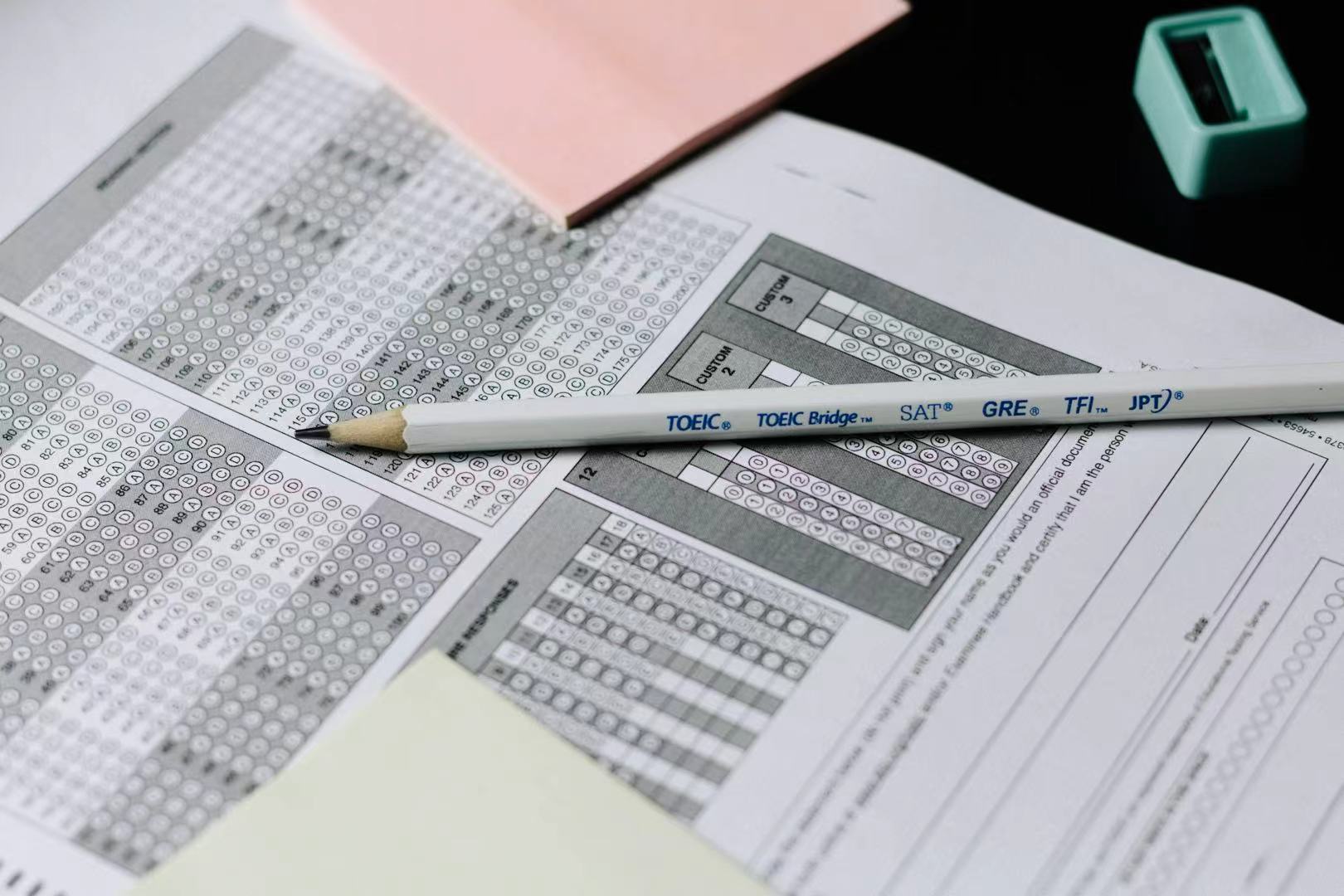Grading system play an important role in universities worldwide. It serves as a standardised way to measure students’ academic performance and other aspects. The GPA grading system is one of the most widely adopted grading systems around the world, however, the GPA grading system university, grading scales and calculations can vary significantly across different countries and institutions. Understanding these details will help you navigate global education standards more effectively. This blog gives you a clear picture of GPA meaning, its calculation, a good GPA boundary, the GPA grading system conversions, and answers to other GPA-related questions.
What is GPA?
GPA grading system university is an important grading system. It stands for Grade Point Average. It is a standardised measure of students’ academic performance, typically on a 4.0 scale. It ‘s calculated by averaging the grades obtained in all courses over a specific period, for example, a semester, a year, or an entire degree program. GPA matters in many ways, universities use GPA as a reference framework for admissions; employers also refer to GPA to identify competitive candidates.
| GPA Range | Performance Level | What It Means |
|---|---|---|
| 4.0 | Exceptional | Mastery of all material, consistent top-tier work |
| 3.7-3.9 | Excellent | Strong understanding, minor errors |
| 3.3-3.6 | Above Average | Good grasp of concepts, but still have room for improvement |
| 3.0-3.2 | Solid | Meets baseline expectations |
| 2.7-2.9 | Below Average | Passing but inconsistent, limited opportunities |
| 2.0-2.6 | Marginal | Minimal passing |
| <2.0 | Fail | Unsatisfactory performance |
Grading Systems and GPA Scores
GPA grading system university is a common grading system, broadly used and recognized by many countries. However, it varies among countries, different universities use different GPA scales, letters, percentages, etc to reflect students’ performances. Knowing these different grading systems is important.
In the UK, universities use honour classifications, in Europe, universities use the ECTS (European Credit Transfer and Accumulation System) to convert grades easily, and the grades is recognized across European countries. The grading system in America is the GPA system, which is broadly used at both the undergraduate and postgraduate levels. In Germany, the GPA grading system university adopts a 5-point scale; in France, the GPA scale in university is 20-point; in Netherlands, the GPA grading system use a 10-point grading scale; in Italy, universities employs 30-points scale.
How to Calculate GPA?
Looking at the numbers, and letters on your transcript, are you confused about the calculation? How can we calculate an average GPA? Well, the calculation process is not as complex as you expected. Each grade you receive, whether it’s number, letter, or percentage matches a quality point. These quality points are usually calculated on a 4.0 scale.
A-4
B-3
C-2
D-1
F-0
Then the calculation process goes like this:
1. Convert your grades into quality points
2. Multiply each by the number of course credits
3. Add all the points together
4. Divide by the total number of credits
For example, if you take three courses: Mathematics (3 credits), History (2 credits), English (3credits), and the grades are A, B, C. Then you get your average GPA like this: (3×4+2×3+3×2)/(3+2+3)=24/8=3, your GPA is 3.0.

Unweighted GPA vs Weighted GPA
While the GPA grading system university varies, they generally distinguish between unweighted and weighted GPA. An unweighted GPA is typically on a 4.0 scale. A(4.0), B(3.0), C(2.0), D(1.0), F(0.0). All classes are treated equally, regardless of difficulty. For instance, if you take an easy and a tough course at the same semester, and both get an A, the GPA for both courses is 4.0, in such case, you may sometimes feel disappointed, as you have work significantly harder on the tougher course, but still achieved the same GPA as the easy one.
Weighted GPA goes beyond the 4.0 scale, for example on a 5.0 scale or sometimes even higher. Some more challenging courses like Honors, AP, IB, etc get extra points. For example, students who get an A in AP is equivalent to 5.0 GPA. The weighted GPA helps to reward students who challenge themselves by taking tougher courses and gives a fairer and more real picture of a student’s overall performance.
Cumulative GPA vs Overall GPA
Cumulative GPA and overall GPA are similar names that refer to the same concept, they both show the average grades but cover different timeframes. The cumulative GPA is a continuously changing number, it tracks your grades in a certain semester or term, and it’s updated each term. While the overall GPA is the final result calculating all the courses you have taken.
What is a Good GPA?
While the GPA grading system university varies, most of universities adopt a 4.0 scale, and a 4.0 GPA is the highest a student can achieve, but it’s not realistic to get a 4.0 at each course and maintain an overall 4.0 GPA. A strong GPA in university is generally 3.5 or higher on a 4.0 scale, reflecting mostly A and B+ grades. For competitive fields like law, medicine, or top graduate programs, 3.7+ is ideal. However, some employers and schools also consider experience, internships, and recommendations. While a 3.0+ is acceptable, falling below may limit your opportunities. Always check your program’s expectations, as standards vary by major and institution.
In the USA, universities like Harvard University, Yale University, University of California Berkeley, and Columbia University, etc. award honors to graduates whom they considered to have a “good” GPA. The highest honour a student can achieve is summa cum laude, followed by magna cum laude, and cum laude, these can vary significantly.
| Honor Degree | GPA |
|---|---|
| Summa Cum Laude | 3.8-4.0 |
| Magna Cum Laude | 3.6-3.8 |
| Cum Laude | 3.4-3.6 |
How Do I Keep a High GPA?
Maintaining a high GPA is not easy. It requires your strategic planning, consistent effort, and wise study methods. You can follow these:
Taking Your Beginning Study Seriously: Your GPA is cumulative, not a fixed number, if you didn’t do well at the beginning, didn’t build a solid base for yourself, it might be hard for you to improve your overall GPA later.
Check Your GPA Each Semester: It’s important to check your GPA habitually, it can help you track your progress and let you know how much you need to study harder to get a higher GPA.
Choose Your Course Wisely: Balance challenging and manageable classes, avoiding those overloading and super challenging classes, if you struggle, it may lower your GPA.
Engage in Class Actively: You need to engage in the class actively to build relationships with professors and classmates.
Resit or Retake: Some universities have such policies to allow students to resit or retake a course and replace the previous bad grades.

Why is the GPA so Important?
Your GPA is a critical and the most obvious metric that indicates how excellent you are. Students with high GPA have an easier path to success, and it will also make your CV more beautiful. GPA matters in many aspects, here are several:
University Admission: When applying to undergraduate or postgraduate schools, universities typically filter applicants by their GPA, consequently, students with a good GPA would have higher chance of being admitted.
Scholarships: In many schools, you need to meet the minimum GPA requirement to apply for scholarships, so, if you don’t have a good GPA, you are not even eligible for a scholarship.
Joining Clubs: The same with joining an organisation or a club. Many organisations and clubs also refer to students’ GPA.
Graduate Programs: If you are applying for a graduate or post-graduate programme, you also need to provide your GPA.
Job Hunting: After you graduated, your GPA is the quickest way for employers to know your ability.
Personal Development: Beyond its role as a tool for academic benefits, GPA also serves as a metric to track personal development through the study process.
GPA isn’t Everything
While students work so hard and unhealthily for a high GPA, you should also bear in mind that GPA isn’t everything. You should not let a single number manipulate you. It doesn’t reflect your real and comprehensive capability, can’t tell how much effort you’ve put in and how resilient and creative you are.
Find What You Love: You should enjoy the process of studying, find something you love and echo with and immerse yourself into it, rather than get a high GPA to choose an easy course, but you didn’t learn anything from it. You study for yourself, not for a void number.
Challenge Yourself: Some students are afraid to get a low GPA by challenging themselves in a harder course, that’s understandable for those interest-driven students. But on the other side, challenging yourself isn’t something shameful. You show something more, you have a daring mentality, you are not afraid to fail, etc, these are more precious things than a high GPA. Knowing that you can find what you love and challenge yourself in a university are the most precious things.
Grading System Conversion
In many countries, there is no official method to convert the grades to GPA, but here, we give you the rough conversion between different GPA grading system university, check it out!
| UK | |||
|---|---|---|---|
| UK Module Marks | UK Classification (Masters) | UK Classification (Bachelors) | US GPA |
| 70+ | Distinction | First Class degree | 4.0 |
| 60-69 | Merit | 2:1 | 3.3-3.7 |
| 50-59 | Pass | 2:2 | 2.7-3.0 |
| 40-49 | Fail | Third Class | 2.0-2.6 |
| 40 Below | Fail | Fail | 0-2.6 |
| Germany | ||
|---|---|---|
| German Grade | Letter Grade | GPA |
| 1.0-1.3 | A | 4.0 |
| 1.7-2.3 | A- | 3.7 |
| 2.7 | B+ | 3.3 |
| 3.0 | B | 3.0 |
| 3.3 | B- | 2.7 |
| 3.7 | C+ | 2.3 |
| 4.0 | C | 2.0 |
| 5.0 | C- or Below | 1.7 or Below |
| France | ||
|---|---|---|
| French Grade | Letter Grade | GPA |
| 17-20 | A | 4.0 |
| 16 | A- | 3.7 |
| 15 | B+ | 3.3 |
| 14 | B | 3.0 |
| 13 | B- | 2.7 |
| 12 | C+ | 2.3 |
| 11 | C | 2.0 |
| 10 | C- | 1.7 |
| 9 | D | 1.0 |
Find Student Accommodation with uhomes.com
uhomes.com provides student accommodations worldwide to suit different budgets. Our platform provides accommodations furnished with modern furniture and convenient facilities, including fitness centres, swimming pools, and laundry rooms, in countries like the UK, the US. Find your ideal accommodation with uhomes.com.
FAQs
Universities review both weighted and unweighted GPAs. Unweighted (0-4.0) shows pure academic performance, while weighted (0-5.0+) reflects course rigor. Top schools value high unweighted GPAs plus AP/IB classes (seen in weighted GPA). Many recalculate GPAs for fairness. Aim for a strong unweighted GPA (3.7+) with challenging courses.
It depends on the detailed requirement of universities. But generally speaking, to get into a top university, you need to achieve a high GPA, ideally above 3.5. Elite schools like Ivy Leagues often expect near-perfect grades, so you might need at least GPA of 3.8 or higher.
It depends on the situation. Some universities do accept students who is 3.0 GPA, while others may require higher GPA. However, 3.0 GPA meets the minimum requirement for many Master’s programs, you can still apply for a Master’s degree. However, top-tier universities such as Ivy League or other competitive programs may prefer students with higher GPA, typically 3.3 to 3.5+ GPA.
To earn honors, GPA requirements vary. For example, in the US and Canada, the Cum laude is for those 3.5-3.7GPA; Magna cum laude is for those 3.7-3.9 GPA; Summa cum laude is for those 4.0 GPA. In the UK and Australia, the First-class is for those 70%+, equivalent to GPA 3.7+, 2:1 (60–69%/3.3+). Check your university’s detailed requirements.
Your chance is very limited. As one of the Ivy League, Harvard prefer students with higher GPA, often around 3.9 or even 4.0. Although they have a holistic admissions process, they also consider other aspects like extracurricular, essay and recommendation into consideration, but with a 3.5 GPA, you are not competitive enough with other extraordinary students. Try to improve your GPA as high as possible.
A 3.5 GPA is equivalent to a UK Upper Second-Class Honour (2:1) degree, which is considered a good undergraduate degree, and indicating students did a good job in the entire university study.
First, you need to convert your grades into quality points, then multiply each by the number of course credits, after that, add all the points together, at last, divide by the total number of credits and get your GPA. You can also use calculators like GPA calculator or your school’s grading portal to help you get your GPA.
A good GPA in university generally is 3.5-4.0. A 3.0 GPA is usually considered a solid base, while above 3.7 or even higher often more competitive, and has advantages for top universities and graduate programs.








